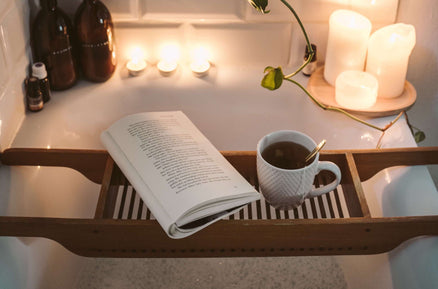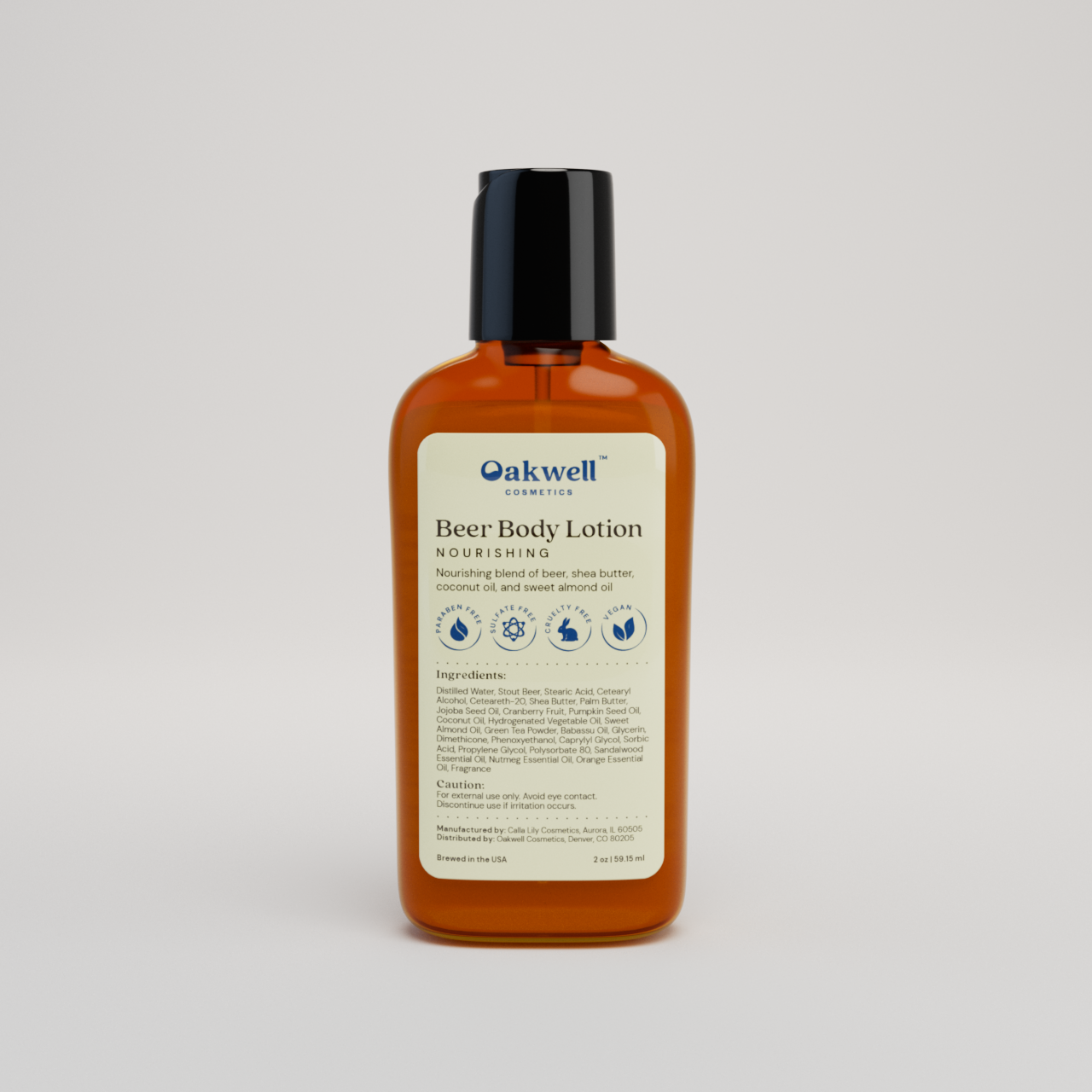How to Wind Down Before Bed: Science-Backed Tips for Adults

Knowing how to wind down before bed can make a big difference in how quickly you fall asleep and how well you stay asleep. If you're a busy adult, it can be difficult to set aside time to unwind, but doing so can help quiet your mind and signal to your body that it's time for rest. Even a short bedtime routine can improve your sleep health and make mornings easier.
In this article, we’ll share the importance of a wind-down routine and 10 practical ways to wind down before bed. We’ll also answer common questions about an evening routine that can help you build habits for more consistent, restful sleep.
Why is a wind-down routine helpful?
A consistent wind-down routine is helpful because it signals to your brain that it's time to transition from being awake to asleep. This can help you get high-quality rest, which can have a significant impact on your physical, emotional, and mental health.
Good sleep can benefit you in the following ways:
- Strengthens your immune system
- Supports a healthy weight
- Reduces stress and boosts mood
- Improves heart health and metabolism
- Lowers the risk of chronic conditions like diabetes, heart disease, and high blood pressure
- Enhances focus, memory, and daily performance
10 Ways to Wind Down Before Bed
To unwind before bed, try stretching or doing light yoga, practicing mindfulness, taking a warm bath or shower, and adjusting the lights. Read on for how to implement these and other practices for better sleep.
1. Try Stretching or Light Yoga
Gentle stretching or yoga before bed can help you release physical tension and calm your nervous system, which allows your body to rest more easily. According to the Sleep Foundation, yoga can improve sleep quality by increasing melatonin levels and reducing symptoms of anxiety, stress, and depression.
Even simple poses like legs-up-the-wall, reclining butterfly, and child’s pose can be effective for unwinding before bed.

2. Do Breathing Exercises
Deep, controlled breathing slows your heart rate and activates the parasympathetic nervous system, which promotes relaxation. Research also shows that slow breathing techniques improve sleep by reducing anxiety and can even help those with insomnia.
Try box breathing: inhale, hold, exhale, and pause for four counts each. You can also try the 4-7-8 method: inhale for 4 seconds, hold for 7 seconds, and exhale for 8 seconds. Both of these are easy for most people to implement at night, especially if you only have a few minutes to wind down before bed.
3. Practice Mindfulness
Mindfulness encourages you to focus on the present moment and let go of racing thoughts. This can help improve sleep, especially for those who often stay awake ruminating and stressing.
The best part? You don't need a long meditation practice for mindfulness. Simply focus on brushing your teeth and doing your skincare routine without distractions.
4. Do a Creative Activity
Engaging in a creative hobby is both a form of self-care and a way to wind down before bed. A hands-on activity is especially helpful for those who struggle sitting still for a nighttime routine. This can also offer a screen-free alternative that encourages presence and mindfulness.
Ideal creative activities before bed include:
- Drawing or coloring
- Baking
- Scrapbooking
- Playing music
- Painting
5. Take a Warm Bath or Shower
A warm bath or shower can help your body relax and prepare for sleep by triggering a natural drop in core body temperature. Research shows that taking a warm bath one to two hours before bed helps people fall asleep faster and experience a better night’s sleep.
Use relaxing bath products to enhance the experience. For example, we love Oakwell Cosmetics Calming Beer Bath Salts and Cedarwood & Amber Candle for cozy vibes.
If you don’t have a bathtub or prefer not to take a bath, a warm shower can also help promote relaxation.

6. Listen to Calming Music
Listening to calming music is a simple way to unwind before bed, regardless of how much time or energy you have. Listening to music before bed can help you fall asleep quicker. It can also help decrease cortisol, the stress hormone, for relaxation.
Try to avoid music with lyrics, as this might stimulate your brain too much. Instead, opt for instrumental, classical, or ambient playlists.
7. Read a Book
If you’ve ever felt like reading makes you fall asleep, there’s science behind this. More than 40% of people report getting better sleep when reading in bed.
While e-books have become increasingly popular, the blue light from these devices can disrupt melatonin production and negatively impact sleep. Instead, read a physical book at night.
8. Adjust the Lights
Exposure to bright light in the evening can delay your internal clock and reduce melatonin production, making it harder to fall asleep and disrupting your sleep hygiene.
Try to minimize bright lighting up to a couple of hours before bed by turning off overhead lights and opting for lamps instead. Reducing or eliminating screen time is also helpful in avoiding the blue light. Many phones and tablets have a "night mode" that reduces blue light.
9. Drink an Herbal Tea
Drinking herbal tea can be a great way to wind down before bed, as many have natural calming properties. That said, be sure to avoid caffeinated teas.
While lavender and chamomile teas are known to help with relaxation, the best evening tea can vary from person to person. Try out a few options to see what you like and what helps best for relaxation.

10. Consider Supplements
Some adults find supplements like melatonin or magnesium helpful for sleep, but research on their effectiveness is still limited. Since supplements can affect people differently, it’s best to talk with your healthcare provider before adding one to your nighttime routine.
How to Wind Down Before Bed: FAQs
Get answers to common questions to make the most of your wind-down routine.
How to stick to a bedtime routine?
The key to sticking to your bedtime routine is forming consistent sleep habits that are simple and sustainable. Start with one or two calming activities you enjoy, and try to do them at the same time each night. Over time, your body will begin to associate these habits with sleep, making it easier to wind down and stick to the routine long term.
How long should you wind down before bed?
Try to spend at least 30 minutes to an hour winding down before bed. This allows your body and brain time to transition from an alert state to a restful one. If you're limited on time, even a 10-minute routine can make a difference.
What is the 3:2:1 rule before bed?
The 3:2:1 rule is a guideline for what to do in the hours leading up to bedtime to help with relaxation and high-quality sleep.
- Stop eating 3 hours before bed
- Stop working 2 hours before bed
- Stop using screens 1 hour before bed
How to calm yourself down before bed?
To calm yourself down before bed, try low-stimulation activities like breathing exercises, reading, or taking a warm shower. It’s also helpful to minimize or eliminate screen time and bright lighting.
What not to do 2 hours before sleep?
Two hours before sleep, try to avoid caffeine, heavy meals, intense workouts, and screen use.
How to Wind Down Before Bed: Conclusion
By incorporating a few relaxing habits into your evening, such as taking a warm bath, reading, or stretching, you can train your body to get better sleep and wake up feeling refreshed. Start small, experiment with what works for you, and try to stay consistent.


Become a part of our community and be the first to learn all there is to know about Oakwell







